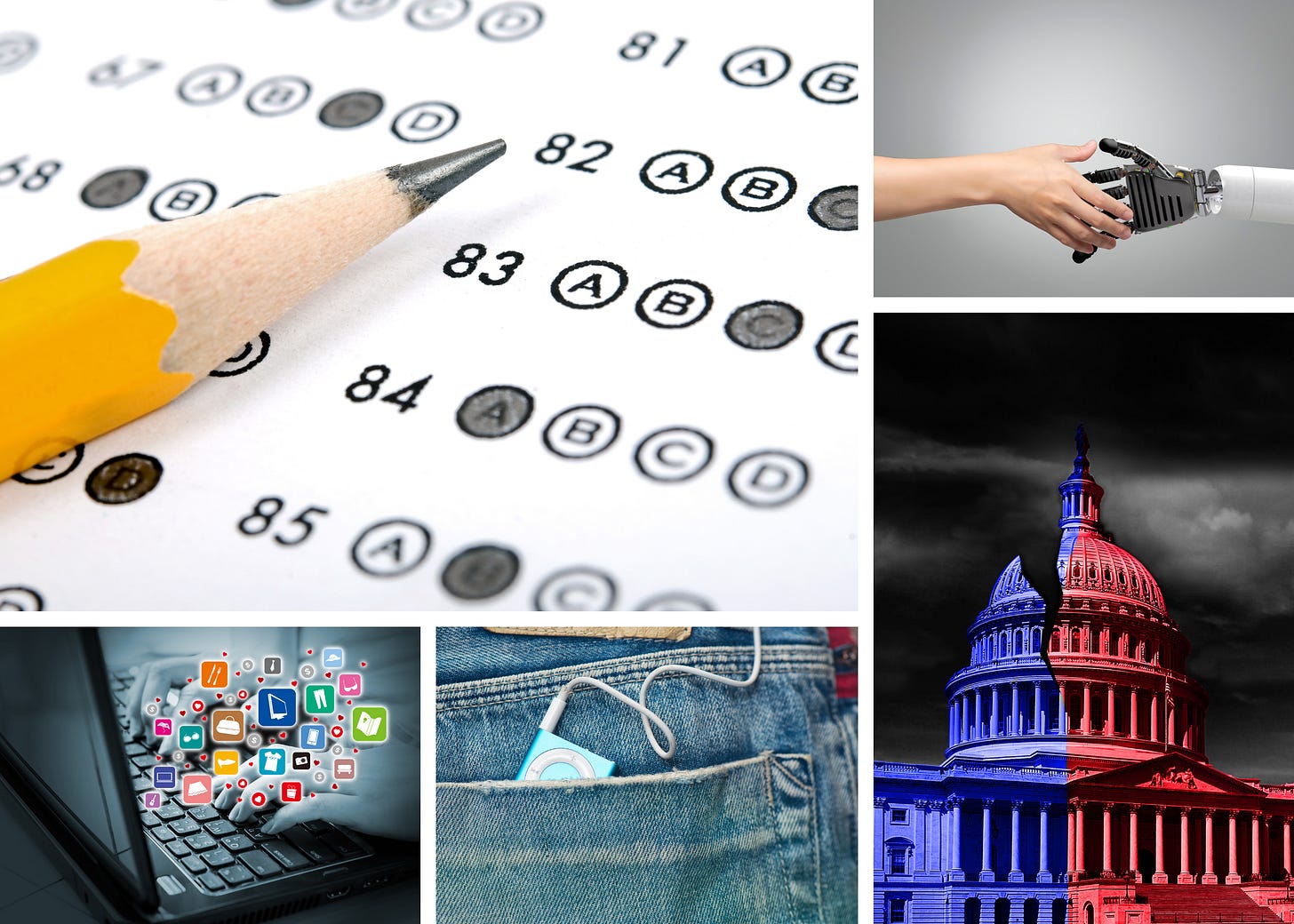Tuesday's Assorted Links
Reading and math scores, AI utilization, online adults, iPods, and political change
Hi y’all! Here are five stories from this week that contained some neat applications of economic principles or are related to teaching:
Reading and math scores among high school students dropped to their lowest levels in 20 years [Associated Press]
Large companies that have experimented with artificial intelligence tools over the last year might be starting to pull back on their actual AI utilization [Apollo Academy]
41% of American adults say they’re “almost constantly” online [Pew Research Center]
Google searches for different iPod models have spiked over the past month, despite the product line being discontinued for more than three years [Sherwood News]
A look at how views on political reform and economic change vary between different countries [Pew Research Center]
At this year’s Emmys, host Nate Bargatze tried to shorten acceptance speeches with a $100,000 charity pledge that ticked down $1,000 for every second winners went over their time. The gimmick was meant to tap into loss aversion, the idea that people work harder to avoid losses than to pursue gains. Instead, the tally went negative. Find out why in this week’s newsletter:
When Loss Aversion Flops
At the 77th Primetime Emmy Awards last week, host Nate Bargatze promised a $100,000 donation to the Boys & Girls Clubs of America. The catch? Every winner had 45 seconds for their acceptance speech. Every second over meant $1,000 would be shaved off the donation. Wrap it up early, and money would be added back.
Are you an educator looking for ways to introduce this week’s newsletter into your classroom? Sign up for the Classroom Edition of Monday Morning Economist to get assessments and lesson plans delivered straight to your inbox every week.




